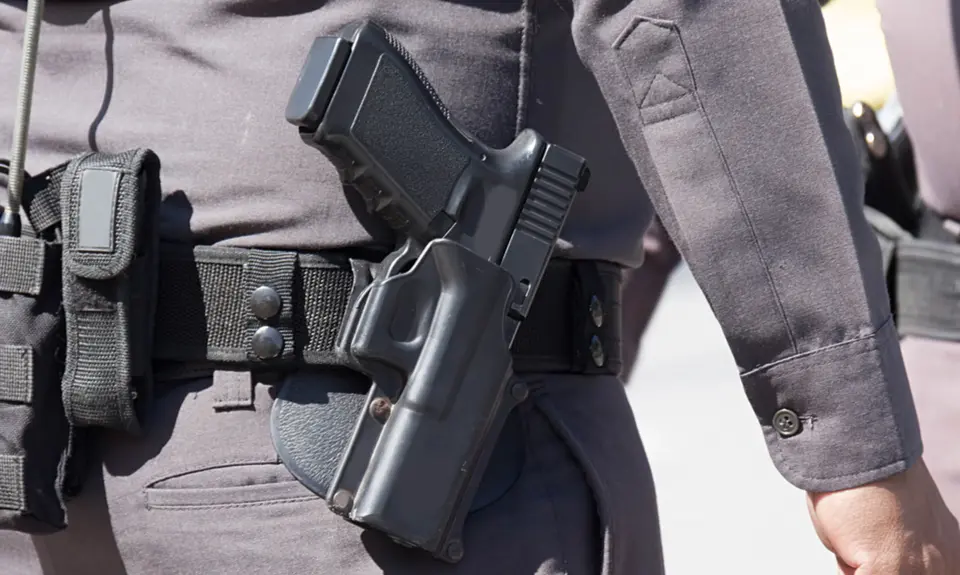“Confirmed Judges, Confirmed Fears” is a blog series documenting the harmful impact of President Trump’s judges on Americans’ rights and liberties. Cases in the series can be found by issue and by judge at this link.
Trump Sixth Circuit judge Amul Thapar wrote a 2-1 decision that affirmed the dismissal of a police brutality case without even a factual hearing. The March 2020 case is Howse v. Hodous.
One evening during the summer of 2016, Shase Howse was walking home when three Cleveland plainclothes police officers pulled up to his house in an unmarked car and began to question him. According to Howse, as he approached the doorstep after unlocking his gate, one of the officers asked if he lived there. Howse said he did. Without identifying himself, the officer repeated the question, asking for further assurance. Howse became irritated, but again affirmed that he lived there. The officer then said he was with the police, approached Howse on his porch and told him to put his hands behind his back, and said he was “going to jail.” Howse continued to protest that he had done nothing wrong, and his mother came out and identified him, but as Howse continued to protest, the officer threw him to the ground, struck him twice in the back of the neck, handcuffed him and arrested him.
Howse was taken to jail, where he stayed for three days. Based on reports by two officers that Howse had struck them as they attempted to investigate, which Howse denied, Howse was charged with assault and obstructing official business. After further investigation, however, the state dismissed all charges against him.
Howse filed a civil lawsuit in which he charged the officers with excessive use of force, assault and battery, and malicious prosecution. Without trial, however, the district court granted summary judgment for the police officers, claiming that they had qualified immunity from Howse’s claims because they were acting in the course of their official duty, and threw out the case.
On appeal, Judge Thapar wrote a 2-1 opinion and affirmed the lower court. Thapar agreed that the officers were entitled to qualified immunity despite the disputed facts, maintaining that such immunity “protects all but incompetent officers or those who knowingly violate the law.” With respect to malicious prosecution, Thapar argued that there was obstruction because Howse admitted that he stiffened his body and yelled, making it “more difficult for the officers to arrest him.”
Judge Guy Cole Jr. strongly dissented. Contrary to the legal principles that even Judge Thapar agreed with in theory, Cole explained, “[m]any of the majority’s conclusions” were “predicated on resolving key factual disputes in the officers’ favor.” Based on clearly established case law and the facts as alleged by Howse, Cole went on, it “violates a clearly established constitutional right for an officer to throw a person to the ground” and strike him “in order to arrest that person without probable cause,” and thus qualified immunity was improper without a trial as to the officers who struck and arrested Howse. The fact that he stiffened and yelled was not relevant, Cole explained, since he did this only after he was struck by the officer and did not pose a threat to the officers or attempt to flee and evade arrest. And as to malicious prosecution, Cole concluded, the case law was clear that Howse’s claim should proceed as well, since he alleged that the officers had “knowingly or recklessly” made false statements that led to charges being filed against him.
As a result of Judge Thapar’s opinion, however, Howse – who had not committed any crime when police assaulted and arrested him – has been denied the opportunity to seek justice for being attacked, and the officers will not be held accountable for their misconduct. And in addition to the dismissal of Howse’s individual case, other people in the Sixth Circuit who experience police brutality must now contend with the dangerous ruling in this case, which further reinforces such impunity. The ruling adds to a growing chorus of opinions by Trump judges that rob people of 4th Amendment protections.
NOTE: The full Sixth Circuit decided not to rehear the case in June, 2020, despite a strong dissent from George W. Bush nominee Julia Smith Gibbons, joined by Bush nominee Helene White and Judge Cole. Judge Gibbons explained that Thapar’s ruling had committed a “precedent-setting error of exceptional public importance.”
The initial draft of this post was prepared by PFAW legal intern Oliver Telusma.
